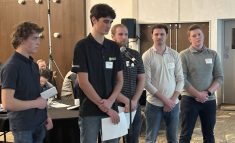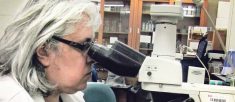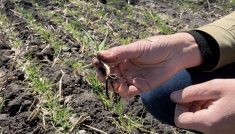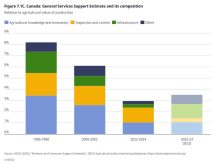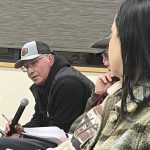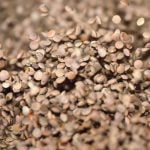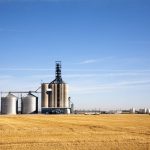“The cornerstone of this program is research, to measure inputs and outputs.”
– GRANT VANDENBERG, PRESIDENT OF THE INTERNATIONAL PARTNERSHIP FOR SUSTAINABLE FRESHWATER AQUACULTURE DEVELOPMENT (IPSFAD)
AWarren farm couple is excited about operating a new model fish farm on their property, despite delays that have set the federal and provincially funded project back months.
“It’s going as planned. It’s just not going as quickly as planned,” said Rudy Reimer, owner of Riddells Roasters, a broiler chicken operation doing farm gate sales.
Read Also

Manitoba Crop Alliance’s 2026 board includes two new faces
For 2026, two new delegates join the Manitoba Crop Alliance’s board of directors, which in turn has re-upped the crop producer organization’s executive from 2025.
A year ago the provincial government rolled out plans to invest in a $1.18-million model fish farm for Manitoba, and at that time announced the Reimer farm as the selected site.
The Manitoba aqua farm, which will be a research facility, is being jointly funded by the federal government through a Department of Fisheries and Oceans (DFO) program. The Reimers are also contributing financially to the project.
Construction of retention ponds and a raceway system, or tank system inside one of Reimers’ barns, was slated to begin last spring, but was just getting started at the beginning of December.
There was a delay in securing additional funding to pay for a full-time staff person for the site, said a spokesperson for the International Partnership for Sustainable Freshwater Aquacul ture Development (IPSFAD), which is streaming the DFO funding for the project.
The site’s main objective is to provide data on all aspects of operating a fish farm, so they did not want to proceed with construction until they had that funding in place, said Grant Vandenberg, president of IPSFAD and a professor of animal science at Laval University.
“The cornerstone of this program is research, to measure inputs and outputs,” said Vandenberg. “That portion of the program was not ready yet, so we were very hesitant to go ahead and start the project.”
As a demo site, one person will be constantly monitoring, scrutinizing and documenting all aspects of the aqua culture farm’s operations. The long-term objective is to answer questions regulators, investors and prospective new fish farm operators currently ask about operating these sites.
Other IPSFAD representatives visiting Manitoba in the summer of 2008, when the fish farm proposal was rolled out, have remarked that without answers on how productive these sites are, as well as their economic impacts, there is, in effect a unofficial moratorium on fish farming in Canada right now.
“The problem for aquaculture in Canada currently is that there is no standard approach to production,” Vandenberg said.
“We need to have a very good picture as to how a farm functions, both on a technical side as well as an economic side,” he said.
The Reimers’ contribution to the project is substantial, including $350,000 in existing infrastructure and another $280,000 in input and operating costs. They will oversee the retrofitting of an existing 12,000-sq.-foot chicken barn with the fish raceway system, plus the construction of required retention ponds for the site. They’ll also be responsible for marketing the estimated 140 tonnes of trout the site will potentially produce annually.
“This project was set up to sell as a commercial operation, so it will basically be selling live fish off the farm as commodity,” said Rudy. He and his wife Leslie have explored the potential for Manitoba retail and food service markets and prospects look very good, Reimer said.
“It won’t be a problem to move the fish,” he said. “The demand is there.”
Leslie said the delay has not caused them any undue hardship, and said it’s given them more time to think about what they’re getting into, as well as what opportunities may eventually open up for others as well. An unusual venture such as this is not especially daunting, she said. Theirs is a farm producing 25,000 roasting chickens annually for farm gate sales. Prior to operating it, the Reimers ran a large Christmas tree farm and agri-tourism business near Steinbach.
“We’re used to strange agricultural occupations,” Leslie jokes.
Vandenberg said IPSFAD is also anxious to get the Manitoba location built and into operation but could not offer a specific date. “After construction is done, then we’ll have to do some final testing of the facility, then bring some fish in, and it will be at that point that we’ll need to start the monitoring,” he said.
IPSFAD had initially proposed a demo site for every province in the country, but other groups are now waiting to see how the site develops at Manitoba. “This is why we’re dedicated to getting the site at the Reimers up and running as soon as possible,” he said.
IPSFAD is a national initiative spearheading research partnerships between experts and industry across the country. Representatives were in Manitoba during the summer of 2008 to propose the model farm.
The federal government said last winter it is committing $23.5 million to Canada’s aquaculture industry over a five-year period to boost the economies of rural, coastal and First Nations communities.






